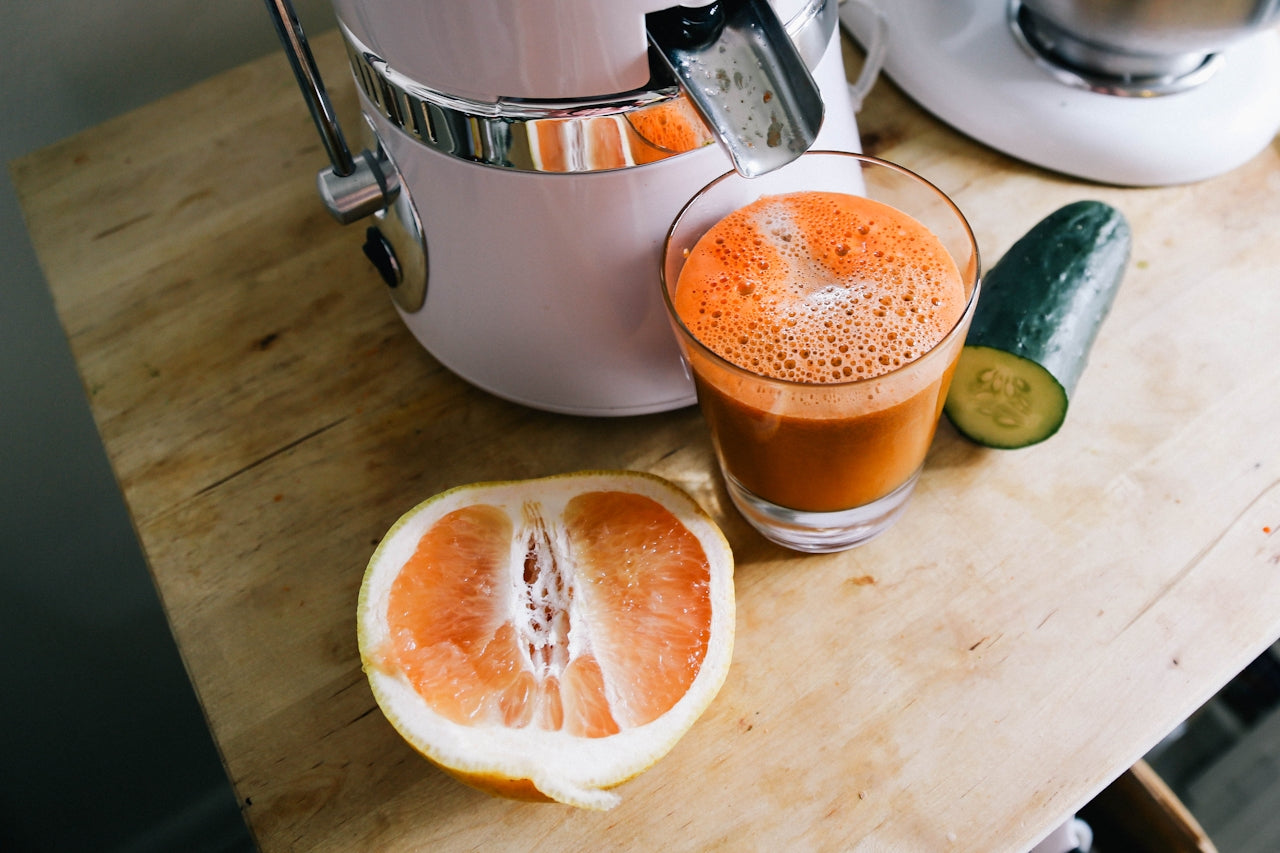Collagen is the It Girl of the beauty and wellness world right now.
You’ll find it in everything from skincare serums to protein powders, and now masks. Some go on your face. Others go in your smoothie. And they all promise the same thing: firmer skin, fewer lines, more glow.
But… which one actually works?
Should you be slapping it on your skin or sipping it through a straw?
Let’s settle the debate.
First, What Even Is Collagen?
Collagen is the most abundant protein in your body.
It holds everything together, your skin, joints, bones, hair, nails, gut lining. Think of it like scaffolding for your skin. As you age, your natural collagen levels start to dip. That’s when fine lines, sagging, and slower recovery start to show up.
Hence, the obsession with topping it back up.
Topical Collagen (aka the ones you put on your face)
What it is:
Creams, serums, sheet masks or gels that claim to boost skin’s collagen levels by applying collagen onto your face.
What the science says:
Here’s the thing, collagen molecules are huge. Too big to penetrate the skin barrier.
So while topical collagen products can feel hydrating or soothing, they’re unlikely to actually boost collagen production deep in the skin.
At best? They add moisture and make your skin feel smoother.
At worst? You’re paying £30 for a temporary glow-up that washes off in the sink.
Worth it?
💧 Nice for hydration, not your collagen levels.
They won’t hurt, but don’t expect miracles.
Collagen You Drink
What it is:
Usually a powder or liquid made from hydrolysed collagen (aka collagen peptides) — broken down so your body can absorb and use them more easily.
What the science says:
There’s more legit research here.
Studies have shown that hydrolysed collagen peptides, taken daily, may:
-
Improve skin elasticity
-
Reduce fine lines
-
Increase skin hydration
-
Support joint health too (bonus)
But, and this is key, it’s not instant. Most studies see results after 8 to 12 weeks of consistent use. And not all collagen supplements are created equal (some are underdosed or full of sweeteners and filler).
Worth it?
💊 Yes, if it’s high quality, and you actually take it regularly.
Which One’s Better?
| Topical Collagen | Drinkable Collagen | |
|---|---|---|
| Main Benefit | Hydration & smoothing | Skin structure support |
| Science Backing | Weak | Stronger (especially peptides) |
| Instant Glow? | Yes, temporary | No, long-term use needed |
| Long-Term Impact? | Minimal | Backed by research |
| Our Verdict | 🧴 Feels nice | 🥤 Does more |
But Wait, Do You Even Need Collagen Supplements?
If you:
-
Eat a balanced diet
-
Get enough protein
-
Have strong digestion (to absorb those amino acids)
-
And support your skin with sun protection + sleep...
You might not need to supplement.
But if you’re in your mid-20s and up, feel your skin changing, or just want to support your body from the inside out, adding a quality collagen peptide supplement can be a smart move.
Just don’t forget it’s not magic. It’s part of the bigger picture.
Final Thoughts
Collagen masks and creams? Fun. Hydrating. Nice for self-care Sundays.
But if you’re serious about supporting your skin’s structure, you’ll get more from what you drink than what you dab on.
Invest in a collagen powder or liquid with:
-
Hydrolysed peptides
-
Around 5–10g per serving
-
Bonus points for added vitamin C (it helps with absorption)
Consistency is key. Results take time. But hey, so does everything good.



